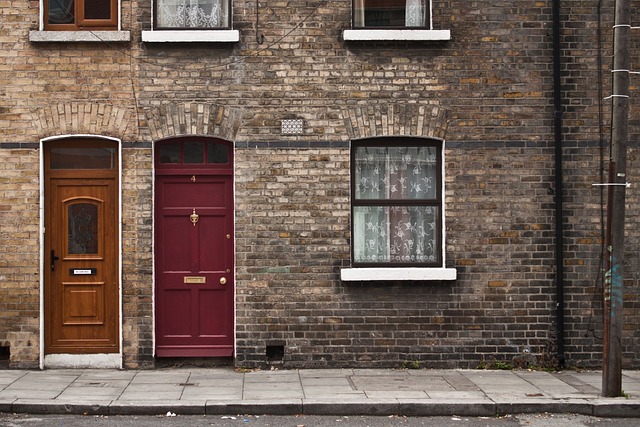Understanding the factors influencing moving costs in Dublin is key to securing optimal value. Pricing varies based on distance, size/weight of belongings, whether hiring professionals or doing it yourself, and additional services. Local moves within city limits or suburbs are generally less expensive than longer distances, while smaller apartments cost less than larger homes. Professional movers charge hourly or by job, whereas DIY moves save money but demand time. Seasonal variations impact costs: peak season (late spring-early autumn) is more expensive, while winter offers potential savings with strategic planning. Negotiating rates with multiple providers ensures fair pricing tailored to your specific move and timing.
Relocating to Dublin? Understanding the costs involved is key to securing best value. Moving house can be expensive, but with careful planning, you can make significant savings. This article guides you through the various factors influencing moving expenses in Dublin, from location and services to packing materials and seasonal fluctuations. Learn how to negotiate rates and discover tips for a cost-effective move, ensuring you get more bang for your buck when relocating in Dublin.
- Understanding the Cost Factors for House Moving in Dublin
- The Impact of Location: Inner City vs. Suburban Moves
- Services Included: Professional Movers and Additional Expenses
- Packing and Material Costs: What to Expect
- Time of Year and Availability: Seasonal Variations
- Tips for Negotiating Rates and Securing the Best Value
Understanding the Cost Factors for House Moving in Dublin

When considering How Much Does it Cost to Move House In Dublin, understanding the various factors that influence pricing is essential for getting the best value. The expense can vary widely based on several key elements, such as the distance of the move, the size and weight of your belongings, whether you’re hiring professionals or doing it yourself, and additional services required like packing, storage, or furniture disassembly/reassembly.
For instance, moving within Dublin city limits will generally be less expensive than longer distances outside the city. Similarly, a smaller apartment with fewer items to move will cost less than a larger home filled with heavy or fragile possessions. Professional movers typically charge hourly rates or by job, while DIY moves can save money but require significant time and effort. Services like packing materials, storage solutions, and specialized care for valuable items also add to the overall moving cost in Dublin.
The Impact of Location: Inner City vs. Suburban Moves

Moving within Dublin can vary greatly in cost depending on the location and size of your property. One significant factor is whether you’re moving within the inner city or to a suburban area. Inner-city apartments often come with premium prices due to their central locations, close proximity to amenities, and high demand from commuters. Conversely, suburban moves might be more affordable as these areas typically offer larger properties with gardens at relatively lower costs.
The distance between your current and new home also plays a role. Local moves within the same neighborhood or city sector tend to be less expensive due to shorter travel distances and reduced man-hour requirements for movers. In contrast, longer-distance moves within Dublin or even cross-city relocations will likely incur higher costs due to increased fuel expenses and potentially more labor-intensive efforts.
Services Included: Professional Movers and Additional Expenses

When considering how much it costs to move house in Dublin, understanding the services included and additional expenses is crucial for securing the best value. Many moving companies in Dublin offer comprehensive packages that include professional movers, packing materials, disassembly and reassembly of furniture, and transportation. These full-service options can significantly streamline the process, saving you time and effort. However, it’s essential to remember that prices vary widely based on the scope of work and distance traveled.
Beyond the core services, there may be additional expenses to factor into your budget. These could include surcharges for heavy or awkward items, stairs or elevators, long-distance moves, or special handling of fragile or valuable possessions. Some companies also offer optional extras like insurance coverage, packing supplies without labor costs, or extra movers for larger homes. Comparing these inclusive services and potential add-ons will help you understand the total cost of moving in Dublin and ensure you’re getting the best value for your money.
Packing and Material Costs: What to Expect

When planning a house move in Dublin, understanding packing and material costs is crucial for budgeting. The expense of materials like boxes, tape, and bubble wrap can vary depending on the size of your move and the number of items you’re transporting. On average, expect to spend between €50-€150 on these essentials, with more substantial moves or those involving many fragile items potentially pushing costs higher.
Additionally, packing services offered by professional movers can significantly impact your budget. While it provides convenience, it comes at a cost—typically ranging from €300 to several hundred euros, depending on the size of your property and the level of service required. For those looking for more affordable options, opting for DIY packing can save money but requires significant time and effort.
Time of Year and Availability: Seasonal Variations

When planning a house move in Dublin, understanding seasonal variations can significantly impact your budget. The cost of moving can fluctuate throughout the year due to supply and demand dynamics. Typically, the peak moving season in Dublin is from late spring to early autumn. During these months, you’ll likely face higher prices as more people opt to move during the warmer weather. This period often sees a surge in demand for removal services, which can drive up costs.
On the other hand, moving off-peak during the winter months might offer better value. With fewer people relocating, you may secure more competitive rates. However, be mindful that certain challenges could arise during colder seasons, such as scheduling issues due to bad weather or reduced availability of movers. To get the best deal, consider booking your move well in advance or exploring off-peak dates when planning your house relocation in Dublin.
Tips for Negotiating Rates and Securing the Best Value

Negotiating rates with moving companies can be a key strategy for securing best value when relocating in Dublin. Firstly, get quotes from multiple firms to establish a benchmark for prices. Don’t be afraid to ask questions about what’s included in each quote – packaging, insurance, labour costs, and travel expenses should all be transparent.
Comparing apples with apples will help you make an informed decision. Additionally, consider the time of year; moving during off-peak seasons can often result in significant discounts as companies seek to fill capacity. Be prepared to negotiate, but do so respectfully and realistically, bearing in mind that a company’s bottom line must also be considered.
When determining the best value for moving house in Dublin, understanding the multifaceted factors involved is key. From location and time of year to packing materials and services, each element contributes to the overall cost. By navigating these variables and leveraging tips for negotiation, you can secure competitive rates for a stress-free transition. Remember, informed decisions and thoughtful planning will ensure your move aligns with your budget and expectations.
